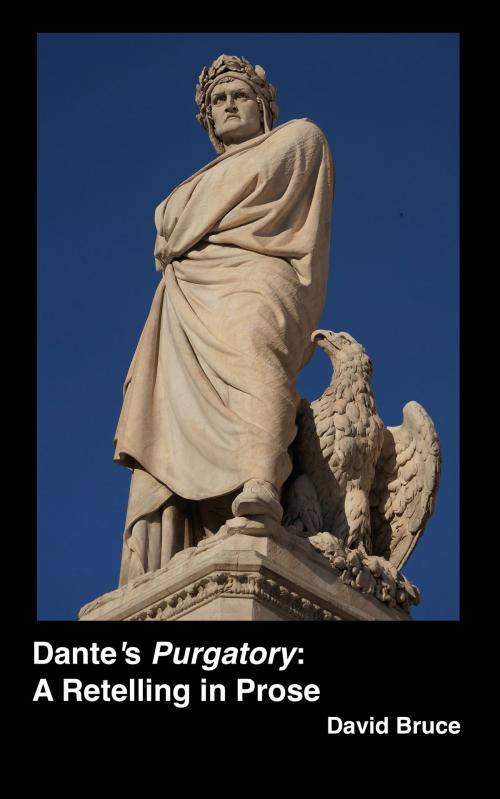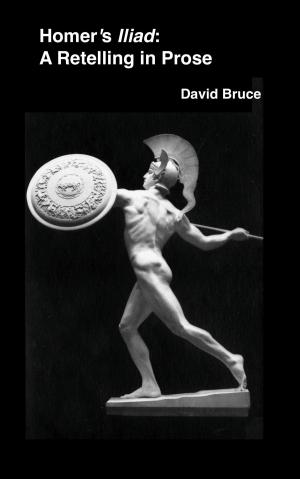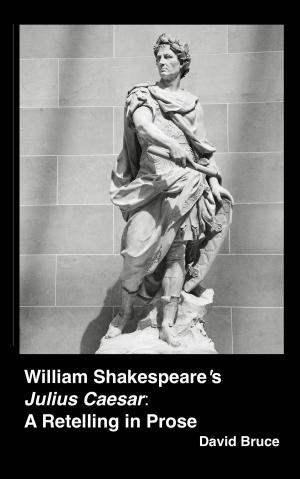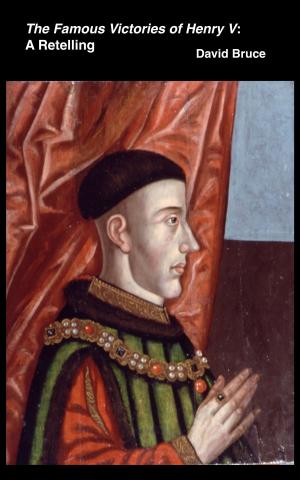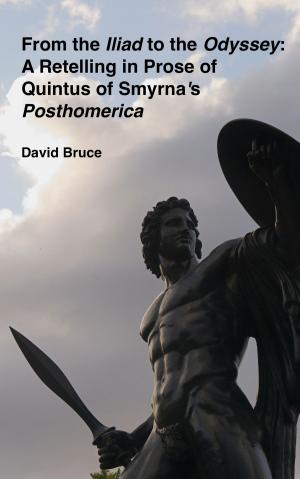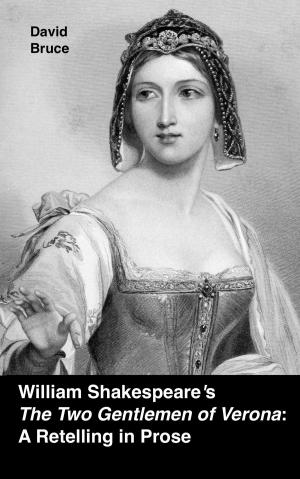| Author: | David Bruce | ISBN: | 9781476076454 |
| Publisher: | David Bruce | Publication: | August 2, 2012 |
| Imprint: | Smashwords Edition | Language: | English |
| Author: | David Bruce |
| ISBN: | 9781476076454 |
| Publisher: | David Bruce |
| Publication: | August 2, 2012 |
| Imprint: | Smashwords Edition |
| Language: | English |
Chapter 1: The Island of Purgatory and Cato the Guard
Dante the Poet thought, Now my talent for poetry must be put to a new test. I have left behind me the Inferno, where unrepentant sinners are punished. Now my subject is Purgatory, where repentant sinners are purged of their sins so that they may ascend to Paradise. Muses, let my poetry be worthy of this subject! Let Calliope, the Muse of Epic Poetry and the leader of the other Muses, assist me! Let Calliope keep me from pride! Pride would keep me from telling this part of my tale correctly. Once, the proud daughters of King Pierus, whom he had named after you Muses, challenged you Muses to a contest of song. They had unwisely sung a song about the proud giants known as the Titans rebelling against their rightful ruler, Jupiter, King of the gods. You, Calliope, sang a song that utterly defeated the proud daughters of King Pierus, and then you changed them into magpies. They were proud challengers, but I am a humble suppliant. Pride is the worst and the foundation of all sins. Please, Calliope, sing for my benefit so that I may properly write about the Mountain of Purgatory!
Dante the Pilgrim looked around him at the base of the Mountain of Purgatory. He and his guide, Virgil, had entered the Inferno on Good Friday of the year 1300. Now, on Easter Sunday, 10 April 1300, dawn was nearing. The Inferno is always in darkness, but here on the Mountain of Purgatory are both day and night. The air of the Inferno always stank, but here the air is always pleasing. Sinners of the Inferno never saw Venus, the planet of love, but here Dante looked up at the sky and saw the bright and beautiful planet.
Dante the Pilgrim then looked to his right, and he saw four stars.
Dante the Poet thought, These are the stars that the first man, Adam, saw clearly, and no man since him has ever seen so clearly. These four stars, which can be clearly seen from the Forest of Eden, are Prudence, Temperance, Justice, and Fortitude. They are the four cardinal virtues. A person who has Prudence is able to judge which of a number of actions is the correct action to pursue. A person who has Temperance is able to practice self-control when self-control is needed. A person who has Justice is able to correctly balance his or her own self-interest with the needs of others, and a person who has Courage is able to conquer fear so that he or she can do the right thing. Virtuous pagans such as Virgil have the cardinal virtues.
Dante looked away from the four stars, and he saw an old man of dignity who commanded respect. Any stranger looking at him felt like a good son looking at a good father. The old man was alone. His beard was long, and it was streaked with white among the black. His hair was long, and on each side of his head his hair flowed down to his chest. His face was brightly lit with rays from the four stars. In fact, so brightly lit was it that a viewer could almost say that the Sun—given to us by God—was shining on the old man’s face.
The old man saw Dante and Virgil and asked, “Who are you? You have escaped from the Inferno by climbing along the passage through which a stream flows from the Forest of Eden at the top of the Mountain of Purgatory into Cocytus in the Inferno. Who is your guide? Who provided you with light to escape from the forever-dark pit of Hell? Have the laws of God changed? Has God decided that some of the Damned may come to the Mountain of Purgatory?”
Dante thought, This is interesting. Can God change His laws? Why not? Once we had an Old Testament and now we have a New Testament. God is all-powerful, all-knowing, and all-good. God is not limited. Could God decree that a virtuous pagan enter Paradise? Why not? God is all-powerful. God is not limited by Humankind’s interpretation of the Bible. If God were to allow virtuous pagans into Paradise, it would be a triumph for Omnipotent Love.
Chapter 1: The Island of Purgatory and Cato the Guard
Dante the Poet thought, Now my talent for poetry must be put to a new test. I have left behind me the Inferno, where unrepentant sinners are punished. Now my subject is Purgatory, where repentant sinners are purged of their sins so that they may ascend to Paradise. Muses, let my poetry be worthy of this subject! Let Calliope, the Muse of Epic Poetry and the leader of the other Muses, assist me! Let Calliope keep me from pride! Pride would keep me from telling this part of my tale correctly. Once, the proud daughters of King Pierus, whom he had named after you Muses, challenged you Muses to a contest of song. They had unwisely sung a song about the proud giants known as the Titans rebelling against their rightful ruler, Jupiter, King of the gods. You, Calliope, sang a song that utterly defeated the proud daughters of King Pierus, and then you changed them into magpies. They were proud challengers, but I am a humble suppliant. Pride is the worst and the foundation of all sins. Please, Calliope, sing for my benefit so that I may properly write about the Mountain of Purgatory!
Dante the Pilgrim looked around him at the base of the Mountain of Purgatory. He and his guide, Virgil, had entered the Inferno on Good Friday of the year 1300. Now, on Easter Sunday, 10 April 1300, dawn was nearing. The Inferno is always in darkness, but here on the Mountain of Purgatory are both day and night. The air of the Inferno always stank, but here the air is always pleasing. Sinners of the Inferno never saw Venus, the planet of love, but here Dante looked up at the sky and saw the bright and beautiful planet.
Dante the Pilgrim then looked to his right, and he saw four stars.
Dante the Poet thought, These are the stars that the first man, Adam, saw clearly, and no man since him has ever seen so clearly. These four stars, which can be clearly seen from the Forest of Eden, are Prudence, Temperance, Justice, and Fortitude. They are the four cardinal virtues. A person who has Prudence is able to judge which of a number of actions is the correct action to pursue. A person who has Temperance is able to practice self-control when self-control is needed. A person who has Justice is able to correctly balance his or her own self-interest with the needs of others, and a person who has Courage is able to conquer fear so that he or she can do the right thing. Virtuous pagans such as Virgil have the cardinal virtues.
Dante looked away from the four stars, and he saw an old man of dignity who commanded respect. Any stranger looking at him felt like a good son looking at a good father. The old man was alone. His beard was long, and it was streaked with white among the black. His hair was long, and on each side of his head his hair flowed down to his chest. His face was brightly lit with rays from the four stars. In fact, so brightly lit was it that a viewer could almost say that the Sun—given to us by God—was shining on the old man’s face.
The old man saw Dante and Virgil and asked, “Who are you? You have escaped from the Inferno by climbing along the passage through which a stream flows from the Forest of Eden at the top of the Mountain of Purgatory into Cocytus in the Inferno. Who is your guide? Who provided you with light to escape from the forever-dark pit of Hell? Have the laws of God changed? Has God decided that some of the Damned may come to the Mountain of Purgatory?”
Dante thought, This is interesting. Can God change His laws? Why not? Once we had an Old Testament and now we have a New Testament. God is all-powerful, all-knowing, and all-good. God is not limited. Could God decree that a virtuous pagan enter Paradise? Why not? God is all-powerful. God is not limited by Humankind’s interpretation of the Bible. If God were to allow virtuous pagans into Paradise, it would be a triumph for Omnipotent Love.
